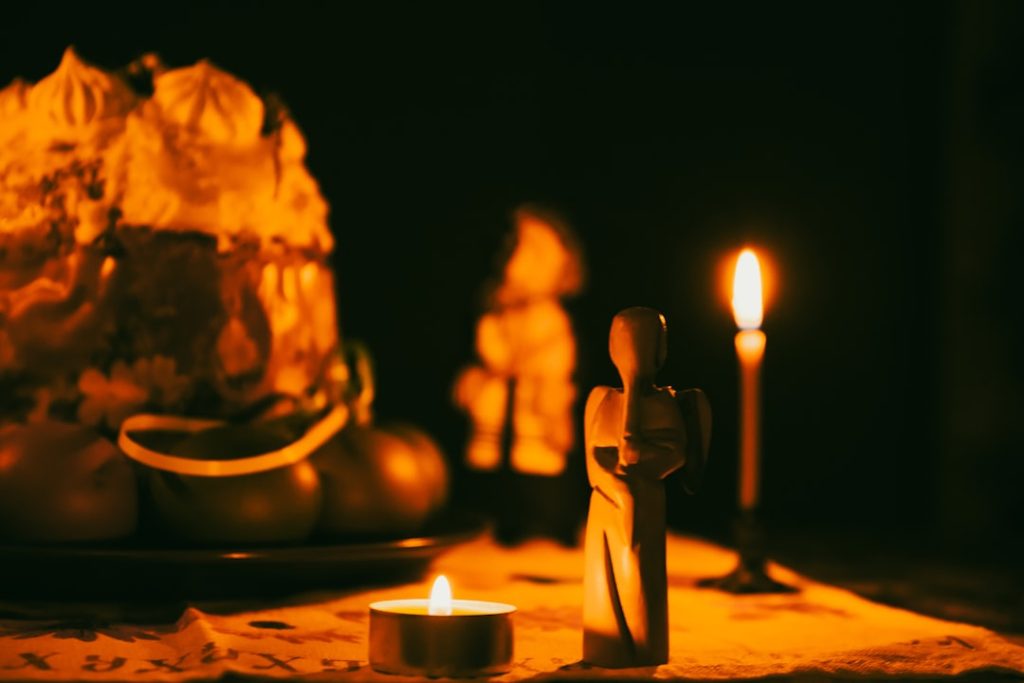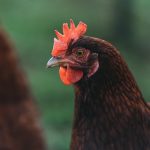Silkie chickens are a distinctive breed known for their fluffy plumage and docile temperament. As winter approaches, it is essential to address their specific requirements to maintain their health and comfort. Silkies are more vulnerable to cold temperatures due to their unique feather structure.
Unlike other chicken breeds, Silkie feathers lack barbicels, the small hooks that typically hold feathers together. This characteristic reduces their feathers’ insulating effectiveness. Furthermore, Silkies have feathered feet, which are prone to becoming wet and cold in winter conditions.
Silkie chickens are also smaller in size compared to many other breeds, resulting in less body mass for heat generation and retention. This makes them more susceptible to cold temperatures and frostbite. Poultry keepers must consider these factors when preparing for winter and implementing measures to keep Silkie chickens warm and comfortable.
Understanding the specific needs of Silkie chickens during colder months allows caretakers to provide appropriate shelter, warmth, and nutrition to ensure the well-being of these unique birds throughout the winter season.
Table of Contents
- 1 Providing adequate shelter and insulation
- 2 Using heat lamps and heating pads
- 3 Ensuring access to fresh water
- 4 Offering high-energy feed and supplements
- 5 Monitoring the health and behavior of silkie chickens
- 6 Implementing additional measures for extreme cold weather
- 7 FAQs
- 7.1 What are Silkie chickens?
- 7.2 Why do Silkie chickens need to be kept warm in the winter?
- 7.3 How can I keep my Silkie chickens warm in the winter?
- 7.4 What temperature is ideal for Silkie chickens in the winter?
- 7.5 Are there any specific health concerns for Silkie chickens in the winter?
- 7.6 Can I use a heat lamp to keep my Silkie chickens warm in the winter?
Key Takeaways
- Silkie chickens have specific needs in winter, including shelter, warmth, and access to water and high-energy feed.
- Adequate shelter and insulation are crucial for protecting silkie chickens from the cold and preventing frostbite.
- Heat lamps and heating pads can be used to provide additional warmth in the chicken coop during winter.
- It is important to ensure that silkie chickens have access to fresh water at all times, as dehydration can occur in cold weather.
- Offering high-energy feed and supplements can help silkie chickens maintain their body temperature and energy levels during winter.
Providing adequate shelter and insulation
Coop Conditions
A well-ventilated but draft-free coop is essential for maintaining a healthy environment for silkie chickens. The coop should be insulated to help retain heat and prevent drafts, but it’s important to ensure that there is still proper ventilation to prevent moisture buildup, which can lead to respiratory issues.
Bedding and Insulation
Adding extra bedding such as straw or wood shavings can also help provide insulation and keep the coop warm.
Outdoor Space
In addition to the coop, it’s important to provide a covered outdoor area where silkie chickens can still get some fresh air and exercise without being exposed to harsh weather conditions. This outdoor area should be protected from wind and snow, and providing windbreaks such as tarps or plywood can help create a more comfortable space for the chickens.
By providing adequate shelter and insulation, poultry keepers can help ensure that silkie chickens are protected from the elements and have a warm and cozy place to roost during the winter months.
Using heat lamps and heating pads
In addition to providing adequate shelter and insulation, using heat lamps and heating pads can be an effective way to keep silkie chickens warm during the winter. Heat lamps can be installed in the coop to provide supplemental warmth, especially during particularly cold nights. It’s important to position the heat lamps safely to prevent any fire hazards or burns to the chickens.
Heating pads can also be used in nesting boxes to provide extra warmth for hens and their eggs. When using heat lamps and heating pads, it’s important to monitor the temperature in the coop regularly to ensure that it stays within a safe range for the chickens. It’s also important to provide a balance, as too much heat can cause chickens to become dependent on artificial warmth and make it harder for them to adjust to colder temperatures.
By using heat lamps and heating pads responsibly, poultry keepers can provide additional warmth for silkie chickens without compromising their ability to adapt to natural temperature changes.
Ensuring access to fresh water
During the winter months, ensuring access to fresh water is essential for the health and well-being of silkie chickens. Cold temperatures can cause water sources to freeze, making it difficult for chickens to stay hydrated. To prevent this, it’s important to regularly check water sources and provide fresh water multiple times a day.
Using heated waterers or adding a small amount of apple cider vinegar to the water can help prevent freezing and keep the water at a drinkable temperature for the chickens. In addition to preventing freezing, it’s important to ensure that water sources are easily accessible for silkie chickens, especially if they spend most of their time indoors during the winter. Placing waterers in multiple locations throughout the coop and outdoor area can help ensure that all chickens have access to water without having to compete with each other.
By ensuring access to fresh water, poultry keepers can help prevent dehydration and keep silkie chickens healthy throughout the winter season.
Offering high-energy feed and supplements
In order to help silkie chickens maintain their body temperature during the winter, offering high-energy feed and supplements can be beneficial. Feeding a diet that is higher in protein and fat can help provide the extra energy that chickens need to stay warm in colder temperatures. This can include feeding a mix of grains such as corn, oats, and barley, as well as adding high-protein supplements such as mealworms or black soldier fly larvae.
In addition to high-energy feed, offering supplements such as vitamins and electrolytes can help support the overall health of silkie chickens during the winter months. Vitamin supplements can help boost the immune system and support feather health, while electrolytes can help prevent dehydration and maintain proper hydration levels. By offering high-energy feed and supplements, poultry keepers can help ensure that silkie chickens have the nutrition they need to stay healthy and active throughout the winter.
Monitoring the health and behavior of silkie chickens

Recognizing Signs of Illness
Cold temperatures can put stress on chickens’ immune systems, making them more susceptible to illness. It’s essential to regularly check on the chickens for any signs of illness or distress, such as lethargy, decreased appetite, or abnormal behavior.
Preventing Frostbite
Checking for signs of frostbite on combs, wattles, and feet is crucial, as these areas are particularly vulnerable in silkie chickens.
Monitoring Behavior for Insights
Monitoring the behavior of silkie chickens can provide valuable insight into their well-being. Observing their activity levels, social interactions, and overall demeanor can help poultry keepers identify any potential issues early on.
By monitoring their health and behavior closely, poultry keepers can take proactive measures to address any concerns and ensure that silkie chickens receive the care they need to stay healthy during the winter.
Implementing additional measures for extreme cold weather
In extreme cold weather conditions, implementing additional measures may be necessary to ensure the well-being of silkie chickens. This can include using windbreaks or tarps to create a more sheltered outdoor area, providing extra bedding in the coop for added insulation, or even using temporary heating sources such as portable heaters or heated pads in extreme cases. It’s important to closely monitor weather forecasts and be prepared to take action if temperatures drop significantly.
In addition to physical measures, adjusting feeding schedules or offering warm treats such as cooked grains or vegetables can also help provide extra warmth for silkie chickens during extreme cold weather. It’s important to be proactive in preparing for extreme cold weather conditions and have a plan in place to ensure that silkie chickens are kept safe and comfortable. By implementing additional measures when needed, poultry keepers can help protect their feathered friends from the harsh effects of extreme cold weather.
If you’re looking for tips on how to keep your silkie chickens warm in the winter, you might want to check out this article on Poultry Wizard’s website. They offer a variety of helpful information on raising and caring for chickens, including ideas for large chicken coops and advice on breeding chickens. Poultry Wizard is a great resource for all things poultry-related.
FAQs
What are Silkie chickens?
Silkie chickens are a unique breed known for their fluffy feathers, black skin, and blue earlobes. They are popular for their friendly and docile nature, making them great pets for families.
Why do Silkie chickens need to be kept warm in the winter?
Silkie chickens have a unique appearance with feathers that are not as tightly packed as other breeds, making them more susceptible to cold temperatures. Keeping them warm in the winter is essential to their health and well-being.
How can I keep my Silkie chickens warm in the winter?
You can keep your Silkie chickens warm in the winter by providing them with a well-insulated coop, using heat lamps or heated pads, and ensuring they have access to fresh bedding and plenty of food and water.
What temperature is ideal for Silkie chickens in the winter?
Silkie chickens are comfortable in temperatures ranging from 40-85°F (4-29°C). It’s important to monitor the temperature in their coop and make adjustments as needed to keep them within this range.
Are there any specific health concerns for Silkie chickens in the winter?
Silkie chickens are prone to frostbite on their combs, wattles, and toes in cold temperatures. It’s important to regularly check for signs of frostbite and take preventative measures to protect them from the cold.
Can I use a heat lamp to keep my Silkie chickens warm in the winter?
Yes, a heat lamp can be used to keep Silkie chickens warm in the winter. It’s important to position the heat lamp safely in the coop and monitor the temperature to prevent overheating or fire hazards.
Meet Walter, the feathered-friend fanatic of Florida! Nestled in the sunshine state, Walter struts through life with his feathered companions, clucking his way to happiness. With a coop that’s fancier than a five-star hotel, he’s the Don Juan of the chicken world. When he’s not teaching his hens to do the cha-cha, you’ll find him in a heated debate with his prized rooster, Sir Clucks-a-Lot. Walter’s poultry passion is no yolk; he’s the sunny-side-up guy you never knew you needed in your flock of friends!







